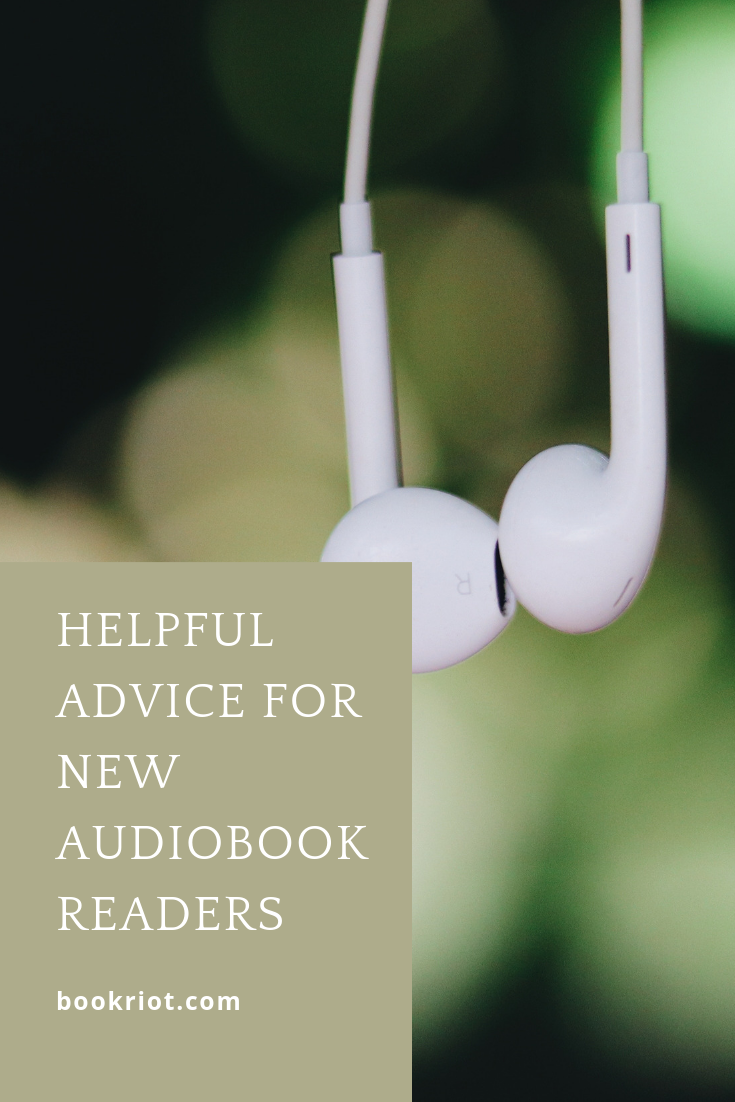Audiobooks have always been daunting to me. I’m always worried I’ll miss some big plot point and then have to start the book over. I’m afraid I won’t retain info because I’m certain I’m a visual learner. I’m also worried about what I’ll do with my hands when I’m listening to a book. But after listening to my first audiobook, I feel like I can listen to every single book this way. I know it’s not feasible and I know I’ll miss holding a book in my hands, but I’m glad I’ve finally pushed myself over that hurtle and sharing my feelings with you. If you haven’t pursued audiobooks for the same reason as me, then I have a few pieces of advice to share with you:
Start With Nonfiction
This is the most solid piece of advice for anyone starting with an audiobook. Because nonfiction books are more information being told to you, it’s easier to listen to an audiobook especially when you’re starting out. Think of it as an extended podcast on a huge topic or person. While I didn’t start with a nonfiction book, I do plan on reading one soon to see if this is true.
Read Books With Great Narrators
Not all audiobooks are equal. Some are amazing when they’re read aloud, while others flop. I would suggest doing some research to find amazingly read audiobooks. I started by reading Behold the Dreamers by Imbolo Mbue. The narrator acted all the voices of each character, even using accents. From the Cameroonian characters to the Long Island secretary all had distinct voices making listening to the book much more entertaining.
Take Five-Minute Breaks Every 20 or 30 Minutes
This is super crucial because you can end up reading an entire audiobook in one sitting. Taking a five minute break every 20 or 30 minutes allows you to think about what you just read. Allow your brain to just digest what you heard, take a break, and make sure to do whatever is necessary to remember what you just read.
Keep Notes on What You’ve Read
I found this super helpful for information retention. It’s like being in class and handwriting your notes while the professor is talking. Taking a moment to write your thoughts after each chapter or after a few chapters allows your brain to process what you just read. It’s similar to that of the five-minute break; give your brain a chance to digest what you read otherwise it’ll just be a bunch of words talked at you. Dedicate a journal to reading audiobooks if it helps keep your notes organized for later analysis.
You Will Not Know What To Do With Your Hands
The hardest part is sitting at a room staring blankly at nothing while listening to a story. I wasn’t sure what I was doing, so I came up with some ideas for using your hands while listening to an audiobook. The only thing I wouldn’t recommend is being on social media while you’re listening. While you may be scrolling through your feed, social media requires you to read a lot and steps you away from focusing on your book.
Download some games on your phone – Games like Candy Crush allow you to focus on your book while also eating candy on your phone. I’ve been using this method over the week to listen to my audiobook and it’s like two different sides of my brain working at once. Start doodling or get some adult coloring books – Doodling is said to be one way people retain more information, so if you’re the type that draws while you’re on the phone with someone or in a meeting, then definitely use those powers to listen to an audiobook. Do little chores around your house – I really love folding laundry or doing dishes while I’m listening to audiobooks. I’m always bored doing nothing than the task at hand, so multitasking and doing something while listening allows me to get more done, faster. I’m always up for a little efficiency in my life.
